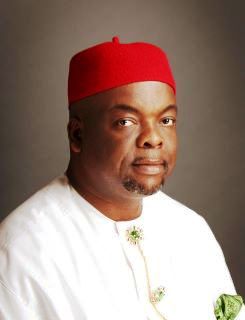Stakeholders in the Labour Sector have been urged to maximise social dialogue as a viable instrument of trade union administration which would yield the benefits of equity, social justice and promotion of business sustainability and competitiveness that would ensure national economic growth.
Minister of Labour and Productivity, Chief Emeka Wogu, CON, made this call today in his keynote address at the Interactive Session of Social Partners on Challenges of Trade Unions’ Jurisdictional Scope and Voluntarism in Nigeria, organised by the Ministry in Abuja.
According to Chief Wogu, the Interactive Session would enable social partners to discuss issues of mutual concern and benefits to their different entities while a balanced understanding of the theme’s concepts of jurisdictional scope and voluntarism would strengthen trade union movement in Nigeria, adding that it would aid Government in Labour Administration and provide guidance for the employers.
“Thus the tripartite consultative machinery would function better and would effectively and efficiently meet the challenges of our time in the Labour Sector and also fulfil the obligations stipulated by International Labour Organisation (ILO) Convention No.144 on Tripartite Consultation (International Labour Standards) Convention 1976 on member states”, he stated.
The Minister underscored that the benefits of social dialogue in Labour administration would be anchored on social peace and stability being part of the Ministry’s mission and vision.
He added: “There is also no doubt that these variables are valuable indicators of good governance and decent work attained in conditions of freedom and democratic institutional frameworks which are hallmarks of the Transformation Agenda of His Excellency, President Goodluck Ebele Jonathan, GCFR”.
Chief Wogu assured that the Interactive Session would advance trade union administration and eliminate areas of misunderstanding between social partners and the Government.
“At the end of deliberations, the employers would be better informed and guided on identities of trade unions operating in their establishments and how to remit check-off dues to the registered Trade Unions along resolved and agreed jurisdictional scope,” he said.
He added: “The Federation of Trade Unions would further agree on their respective jurisdiction and memberships and would be expected to advise their affiliated Trade Unions accordingly”.
The Labour Minister assured that the Ministry would continue to render advice and clarification based on the outcome of the Interactive Session and guided by extant laws, to whoever required guidance on the subject.
He indicated that the outcome of the Interactive Session would be a subject of discussion at the 2nd Registrar of Trade Unions National Workshop on “Current Challenges and Prospects of Trade Unions Administration in Nigeria billed to hold in Abuja from November 20 to 21, this year.
Chief Wogu pointed out that the Ministry was motivated to initiate extensive discussions on the issues of trade unions’ jurisdictional scope and voluntarism based on numerous complaints on the matter from Trade Unions, from employers and some Ministries, Departments and Agencies (MDAs) at different tiers of governance.
He said the Ministry recognised that the right to organise and form employers’ and workers’ organisations was essential for a sound national industrial relations system which included the mechanisms for Collective Bargaining and Social Dialogue.
“However, in consideration of the fact that in pursuit of these rights, conflicts of interests are possible realities, the need for tripartite and bipartite machinery has risen and is being put into practice co-jointly today”, he added.
In a goodwill message, the Director of International Labour Organisation (ILO) Country Office for Nigeria and Liaison Office for ECOWAS, Ms. Sina Chuma-Mkandawire stressed that the ILO promotes freedom of association at the core of its mandate.
The ILO Country Office Director who was represented by Mrs. Runo Onasode, stated that the standard set by ILO (Article 2 of Convention No. 98) on freedom of association required that “there should be total independence of Workers’ organizations from employers in exercising their activities”.
She added that the principle of “freedom of association” extended to the rule that public authorities should exercise great restraint in relation to intervention in the internal affairs of trade unions”.
Other social partners in attendance were the Nigeria Labour Congress (NLC), Trade Unions Congress (TUC) and Nigeria Employers’ Consultative Association (NECA).


